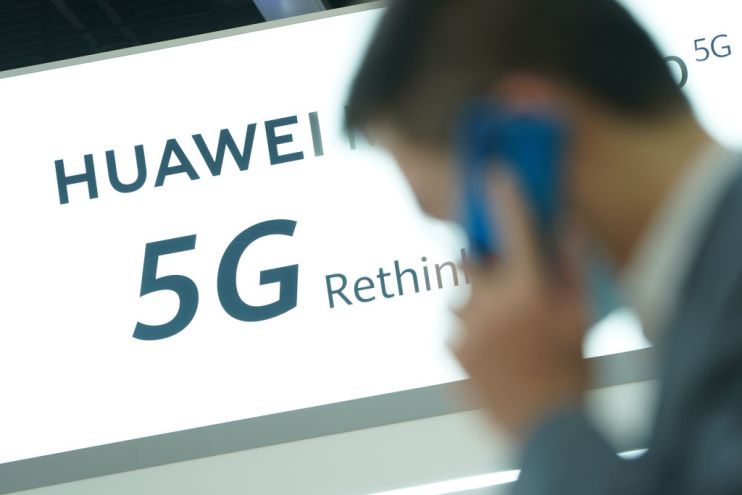Huawei: ‘Clear evidence’ of collusion with Beijing, MPs warn

There is “clear evidence of collusion” between Chinese tech giant Huawei and authorities in Beijing, top MPs have warned.
In a report published today parliament’s defence committee claimed Huawei was “closely linked” to the Chinese state and the Communist Party.
It also cited concerns about Huawei’s receipt of state subsidies and Chinese intelligence laws that force private companies to hand over information to authorities.
The committee’s findings were based on testimony from academics and cybersecurity experts, but did not include any new evidence.
A Huawei spokesperson said: “This report lacks credibility, as it is built on opinion rather than fact.
“We’re sure people will see through these accusations of collusion and remember instead what Huawei has delivered for Britain over the past 20 years.”
But the conclusions will mark a further blow to Huawei, which has been banned from building the UK’s 5G networks amid concerns about its links to Beijing.
The MPs welcomed the decision to exclude the Chinese telecoms group, but said the government should consider moving its deadline for the removal of Huawei equipment forward from 2027 to 2025.
“The west must urgently unite to advance a counterweight to China’s tech dominance,” said committee chair Tobias Ellwood.
“As every aspect of our lives becomes increasingly reliant on access to data movement we must develop a feasible, practical and cost-effective alternative to the cheap, high-tech solutions which can be preyed upon and which come stooped with conditions which ensnare a state into long-term allegiance to China.”
He added: “We must not surrender our national security for the sake of short-term technological development. This is a false and wholly unnecessary trade off.”
Murky motives
In its report the defence committee said it was “unacceptable” that commercial concerns had been put ahead of national security considerations and urged the government to tighten its policies on cybersecurity.
It backed the creation of the Telecoms Security Bill, which would allow the government to force operators to take action in the interests of national security, and said it should be introduced before the end of the year.
The MPs also supported proposals for a new alliance of the world’s 10 largest democracies — dubbed D10 — to find alternatives to Chinese technology.
Ellwood said the alliance would provide a “viable alternative foundation to the technological might of authoritarian states, whose true motives are, at times, murky”.
“Democracies the world over are waking up to the dangers of new technology from overseas that could inadvertently provide hostile states access to sensitive information through the backdoor,” he added.
Telecoms tensions
The debate over Huawei, which has lasted several years, has sparked a major row between the government and the telecoms industry.
The UK’s major network operators have warned that ripping out Huawei equipment will cost huge sums of money and slow down the country’s rollout of 5G.
A report published last month by the Centre for Policy Studies found delays to the rollout of 5G could cost the UK tens of billions of pounds in lost output.
The defence committee acknowledged that removing Huawei equipment sooner than 2027 could result in signal blackouts, delay the rollout and create huge costs to both operators and the economy.
But it suggested the government could compensate operators if the 2027 deadline had to be moved forward.
In addition, the report warned that the UK vendor market for 5G kit was not diverse enough.
It encourage the government to work with network operators to bring in new companies such as Samsung or NEC.